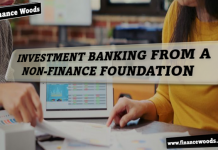
From the technology of the math device, which made financial computations simpler, to the goliath supercomputers used to control the present complex financial models, technology and finance have forever been entwined.
The fintech business was conceived out of that consolidation and presently most financial movement is finished on cell phones, making financial services available to additional people.
As well as expanding openness, technology has achieved different basic changes in financial frameworks all over the planet, some of the time changing whole businesses, as on account of cell investment projects and stockbrokers.
In any case, the fintech upheaval proceeds unabated, and here are probably the greatest patterns affecting the future of assets, driven by the taught entrepreneur.
As well as expanding openness, technology has achieved various major changes in financial frameworks all over the planet, occasionally changing whole ventures, as on account of cell investment projects and stockbrokers.
However, the fintech unrest proceeds unabated, and here are the absolute greatest patterns influencing the eventual future of assets, driven by taught business visionaries.
How is Technology Molding the Future of Finance?
As financial services get away from the domain of remote eye-to-eye cooperation, security has become one of the main worries for partners to address.
Cybercrime keeps on developing at a disturbing rate, and ransomware liabilities are gradually turning into a typical working investment for some organizations.
To battle this, biometric choices are acquiring consideration for accomplishing the most elevated conceivable degree of safety. This is because biometric markers won’t be quickly recreated or discharged. Fingerprints are the standard, yet normal wellbeing concerns are additionally moving the concentration to contactless biometric ID options.
Open Banking Technology:
Generally, financial organizations have strictly confidential client data to get benefits in the commercial center. Generally, this includes denying admittance to likely another party, yet I have frequently seen banks keep full control from getting their information to their clients.
All the more as of late, with the sanctioning of information security regulations that permit clients to access and move information as they wish, the hypothesis of open banking has been resuscitated, yet this is a joint effort between fintech organizations and conventional banks.
Open banking was accounted to have created $7.29 billion in 2018 and is supposed to reach $43.15 billion by 2026. Increment your benefits and make more beneficial investment choices.
Regtech Technology:
As fintech organizations keep on building arrangements around new technologies, states and their controllers all over the planet appreciate staying aware of new guidelines and rules covering every single new turn of events. In that capacity, fintech organizations should deal with interwoven guidelines in each state in which they work.
RegTech arrangements can commonly be isolated into the character of the executives, exchange following, dangers related to exchanges, and administrative inclusion.
The reason for most reg-tech choices is to smooth out specific strategies and agree with material guidelines. The size of the Regtech market is projected to develop from 6.3 billion in 2020 to 16 billion in 2025, at a build yearly development rate (CAGR) of 20.3%.
Digital Finance Reception:
A long way from its initial periphery days, 2020 saw expanded reception among major financial services organizations.
For instance, in November, PayPal declared that it would start permitting all US shoppers to purchase, sell, and hold crypto on its foundation.
As additional people begin utilizing digital forms of finance, more organizations will begin tolerating them. Digital currencies are not without disadvantages (for instance, instability and security), so organizations that can give replies to these traps will be compensated by the business.
Mobile Payment:
Money isn’t dead yet. Be that as it may, while the world is disappearing from actual contact and portable payment choices are turning out to be more generally accessible, it is disappearing. From little new businesses to tech goliaths like Apple and Google, portable payments have turned into a need for financial services organizations.
Arrangements that work with money moves are normal, however worldwide exchanges stay a significant issue. TransferWise raised $319 million at an expense of $5.5 billion, and other fintech organizations collected a truckload of money, however, there is still far to go before worldwide exchanges are essentially as consistent as nearby ones.
The size of this settlement market proceeds to develop and with it comes the capability of mobile payments.












